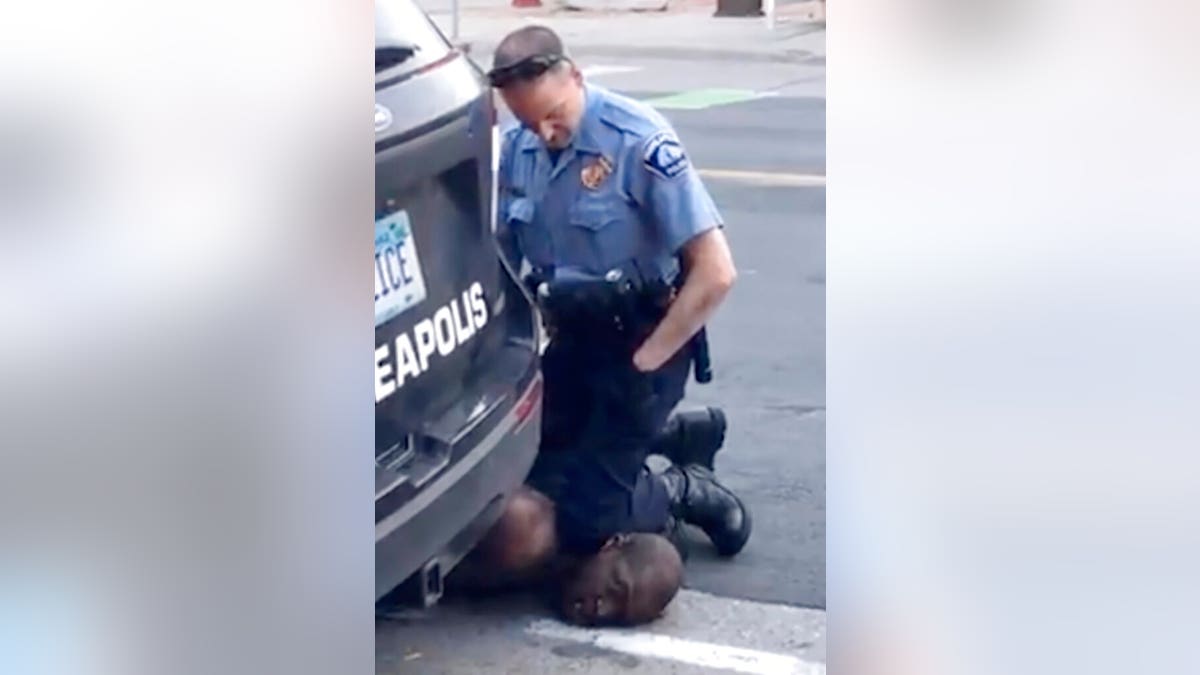Exclusive: Dr. Michael Baden on findings of George Floyd's independent autopsy
Forensic pathologist Dr. Michael Baden's independent autopsy finds that George Floyd died by homicide caused by asphyxia.
EXCLUSIVE: George Floyd died "many minutes" before he was transferred to a stretcher and taken to a Minneapolis hospital, forensic pathologist Dr. Michael Baden told Sean Hannity Monday.
Baden, one of two doctors to conduct an independent autopsy that concluded that Floyd died of asphyxiation at the hands of local police on May 25, told Fox News that medics "tried to do CPR with him [Floyd] in the ambulance, but were unable to find a pulse.
"He had a cardiac arrest and they tried to shock him and the shocks didn't work," Baden added. "He was dead before they put him on the stretcher ... many minutes before he gets to the hospital."
GEORGE FLOYD'S FAMILY RELEASES INDEPENDENT AUTOPSY SHOWING DEATH BY ASFIXIATION

In this Monday, May 25, 2020, frame from video provided by Darnella Frazier, a Minneapolis officer kneels on the neck of a handcuffed man who was pleading that he could not breathe in Minneapolis. (Darnella Frazier via AP)
According to the independent autopsy report released by Floyd's family, he died of asphyxia due to neck and back compression that led to a lack of blood flow to the brain.
Preliminary results from the official autopsy, which were included in a criminal complaint against former Minneapolis police officer Derek Chauvin -- who kneeled on Floyd's neck for eight minutes in the now-viral video -- said officials had found nothing "to support a diagnosis of traumatic asphyxia or strangulation." On Monday, an updated autopsy report classified Floyd's death as a homicide and listed the cause of death as "cardiopulmonary arrest complicating law enforcement subdual, restraint, and neck compression."
GIULIANI: EX-MINNEAPOLIS COP SHOULD FACE FIRST DEGREE MURDER CHARGES
"One can die just from compression of the neck sufficiently," said Baden, who added that there was also "compression, that you can see [in] the video, of the back. Pressure on the back prevents the diaphragms from moving up and down which is necessary to inhale and exhale."
Baden has conducted other independent reviews in similar cases of police brutality, including that of Eric Garner, a black man who was placed in a chokehold by New York police who were attempting to arrest him for selling loose cigarettes and would not relent even as he pleaded that he could not breathe.
Much like in the case of Garner, the pressure of both the neck and back on the restrained men are what caused them to say 'I can't breathe,' Baden said.
GEORGE FLOYD FAMILY ENLISTS DR. MICHAEL BADEN TO PERFORM SECOND AUTOPSY
"There's a big misconception among police that if a person can talk and say 'I can't breathe,' that means he’s breathing," Baden went on. " I am talking to you now for a while without breathing. I keep talking. You don't need to be breathing in order to say I can't breathe or in this instance [when Floyd] reaches out and calls for his mother, [saying] 'mama, mama,' who died three years ago, and still nobody lessened up their pressure on him."
Baden, who is also a Fox News contributor, traveled to Minneapolis over the weekend to conduct his review,alongside forensic pathologist Dr. Allecia Wilson, even as thousands of protesters nationwide took to the streets to condemn police brutality.
Fox News' Vandana Rambaran and Bradford Betz contributed to this report.






















